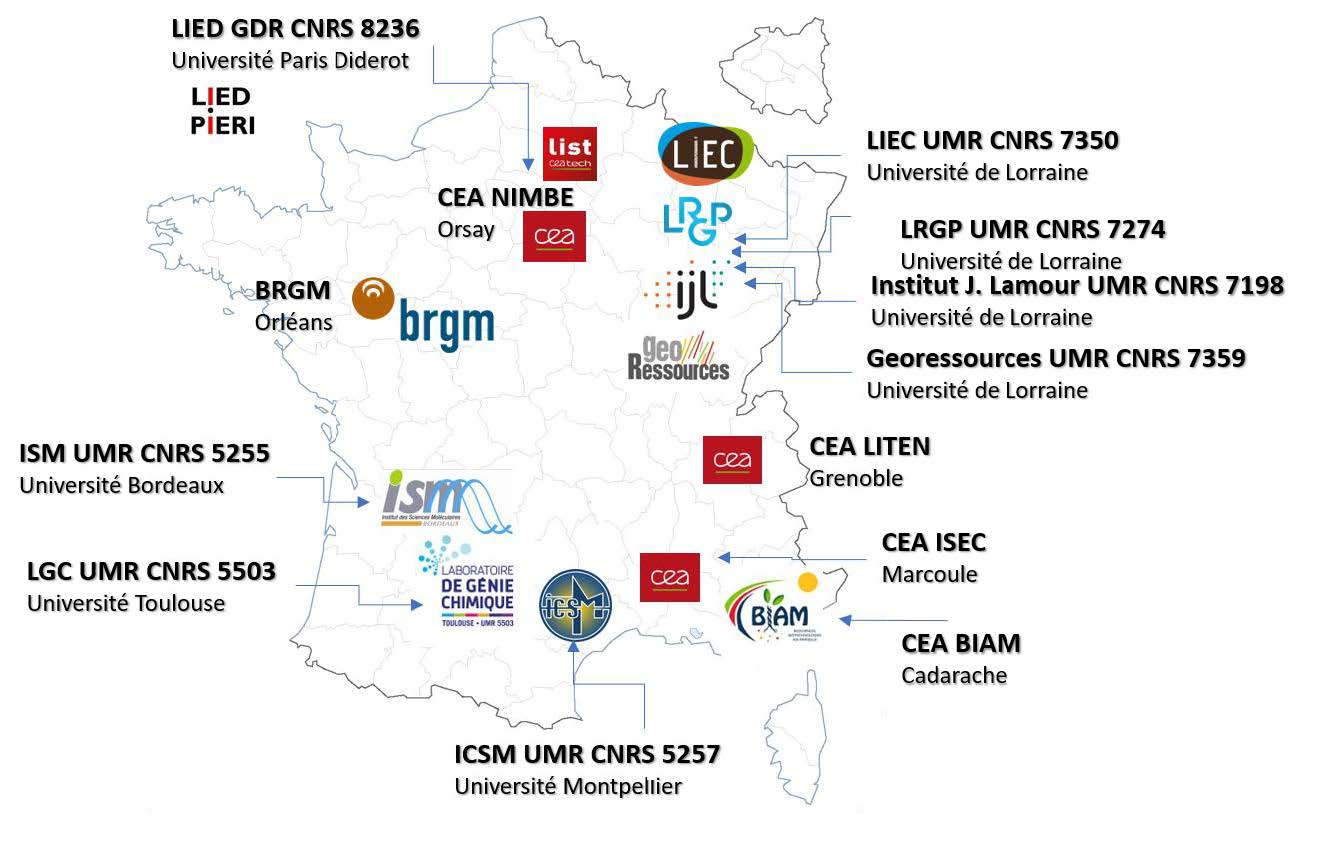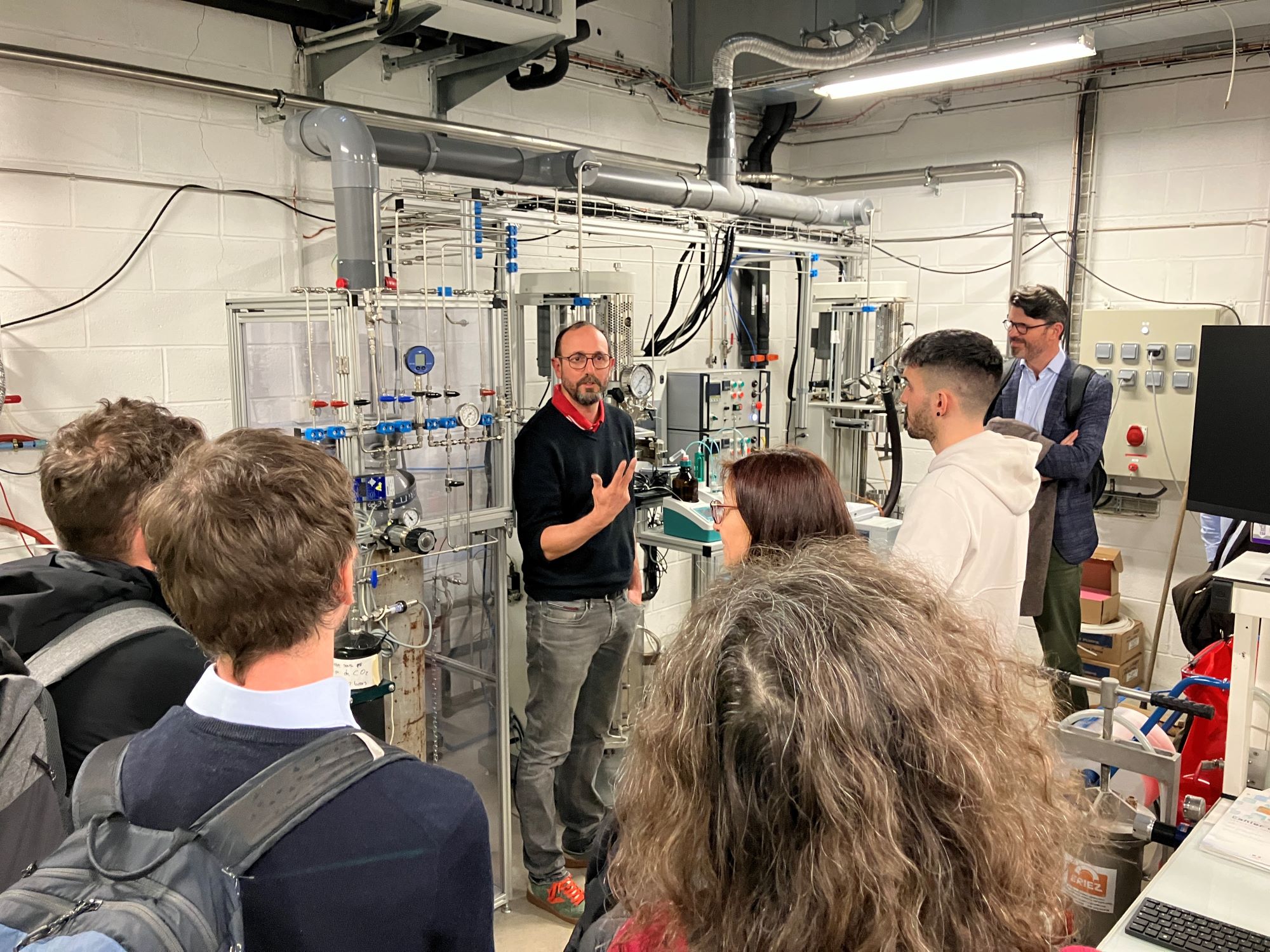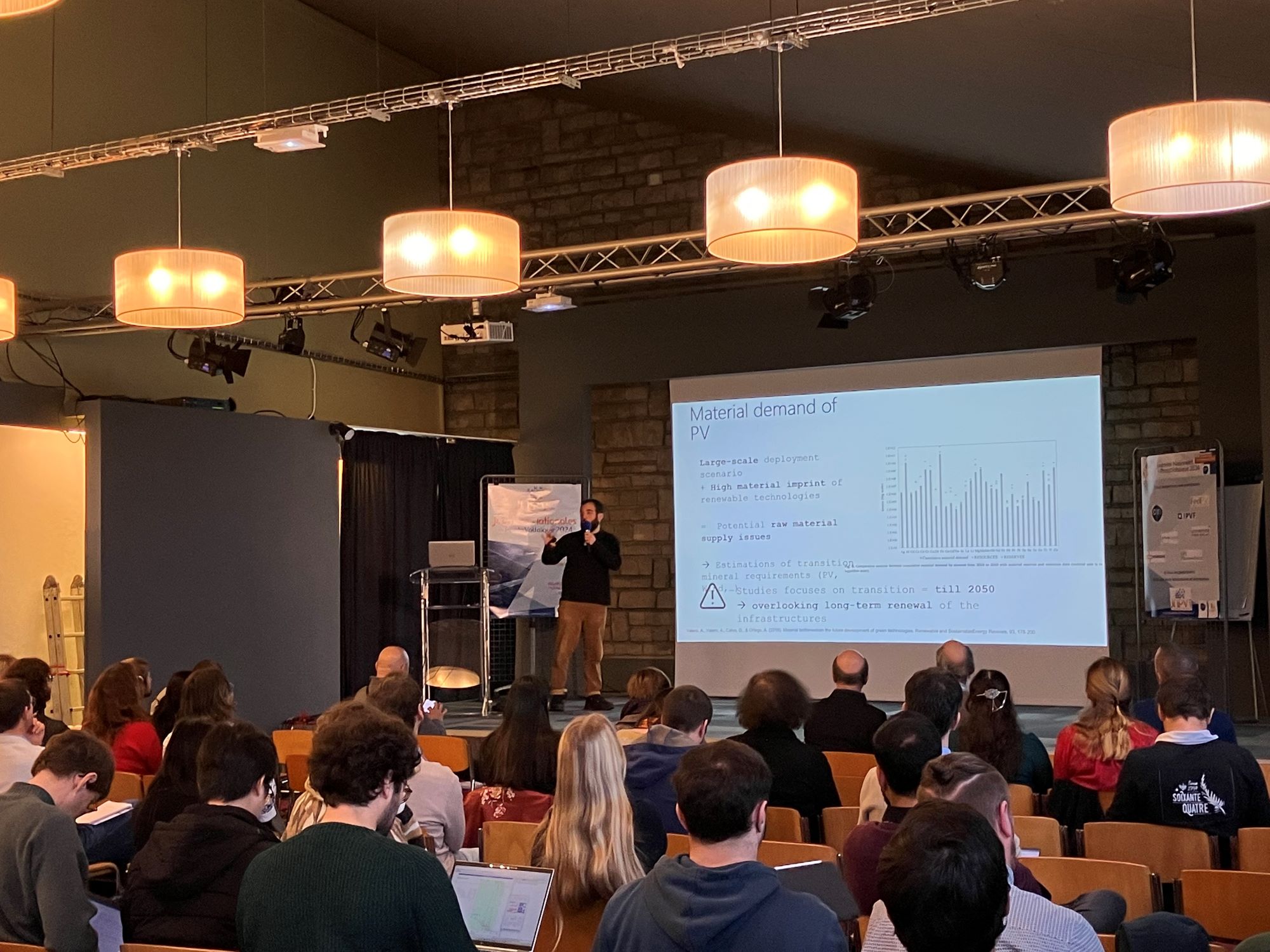
Strategic metals axis
Excerpt
Project : Cyclamet, recyclage des métaux stratégiques
Yannick Menard (BRGM)
Contact : y.menard@brgm.fr
Stéphane Pellet-Rostaing (ICSM)
Contact : stephane.pellet-rostaing@cea.fr
Launch date : 01/06/2023
Reference : ANR-22-PERE-0003
The general objectives of the Cyclamet project are to:
- Provide a framework for the socio-economic and environmental assessment of strategic metals recycling, including the development of environmental impact indicators to assess the sustainability of their management.
- Develop unit operations to optimize the recovery and valorization of metals contained in end-of-life objects, and to produce salts or marketable metals (purified, in alloy form),
- Provide tools and methods to feed other targeted projects,
- Provide other targeted projects with data on material composition and interconnections between phases (metallic, mineral, organic), reflecting the complexity of the matrices studied.
Keywords: Recycling, strategic metals, hydrometallurgy, automation, processes, sorting
Tasks
Our researches
Socio-economic and environmental assessment of strategic metals recycling
- Systemic approach to material and energy flows under stress for the recycling of strategic metals
- The recycling industry in Europe: Scandinavian countries at the forefront
- Implications of recycling strategies for the defense industry
- Development of environmental impact indicators for strategic metals management
Optimize automation and measurement time, with the aim of setting up on-line analysis systems for sorting adapted to recycling channels
- Target use cases to adapt the method (signal/noise, measurement time, shaping of the incident spectrum…)
- Spectrum processing for fast, accurate quantification of elements of interest
- Automation of the measurement process, with the aim of setting up a sizing support system (identification of atomic elements of interest to guide sorting / instrumentation / measurement optimization).
Develop soft chemical alternatives to existing complex and polluting hydrometallurgical processes for the recovery of strategic metals
- Evaluate the potential of industrial-scale preparative chromatography for metal extraction.
- Use ionic solvents and couple electrolysis and electrodeposition (EE) in a single cell as an alternative to conventional hydrometallurgical processes.
- Develop efficient and economically viable processes, aiming for lower effluent and waste production, energy savings and operator safety.
Develop innovative numerical tools to support the design and scale-up of hydrometallurgical processes for metal recycling, from leaching to separation and purification stages
- Develop a numerical tool to describe the various phenomena influencing the process and their coupling (case study: printed circuit board (PCB) waste).
- Predict the geometric properties of emulsions (interfacial area, breakage/coalescence sites) to enhance the reliability of predictions of M/S operation.
Tools for process optimization
- Development of microfluidic equipment for on-line measurement of parameters such as dissolved O2 and CO2, metal ion concentrations…
- Can Quorum Sensing be “gamed” to improve metal recovery from e-waste?
Key numbers
Laboratories
Researchers
Total budget
Consortium
Contribute to making the metals in our waste accessible by preventing their dissipation
Provide quantitative data to assess the value of recycling and its effect on the accessibility of metals
Understand the dynamics and interconnections between the production of secondary materials and the needs driven by the energy transition
Develop dedicated, clean, robust and agile processes at the interface between scientific fields, capable of adapting rapidly to changes in the composition of the urban mine and recovering a large number of metals present in our waste.
Soon to come
Training of 6 PhD students and 13 post-docs.

Axis news


No news